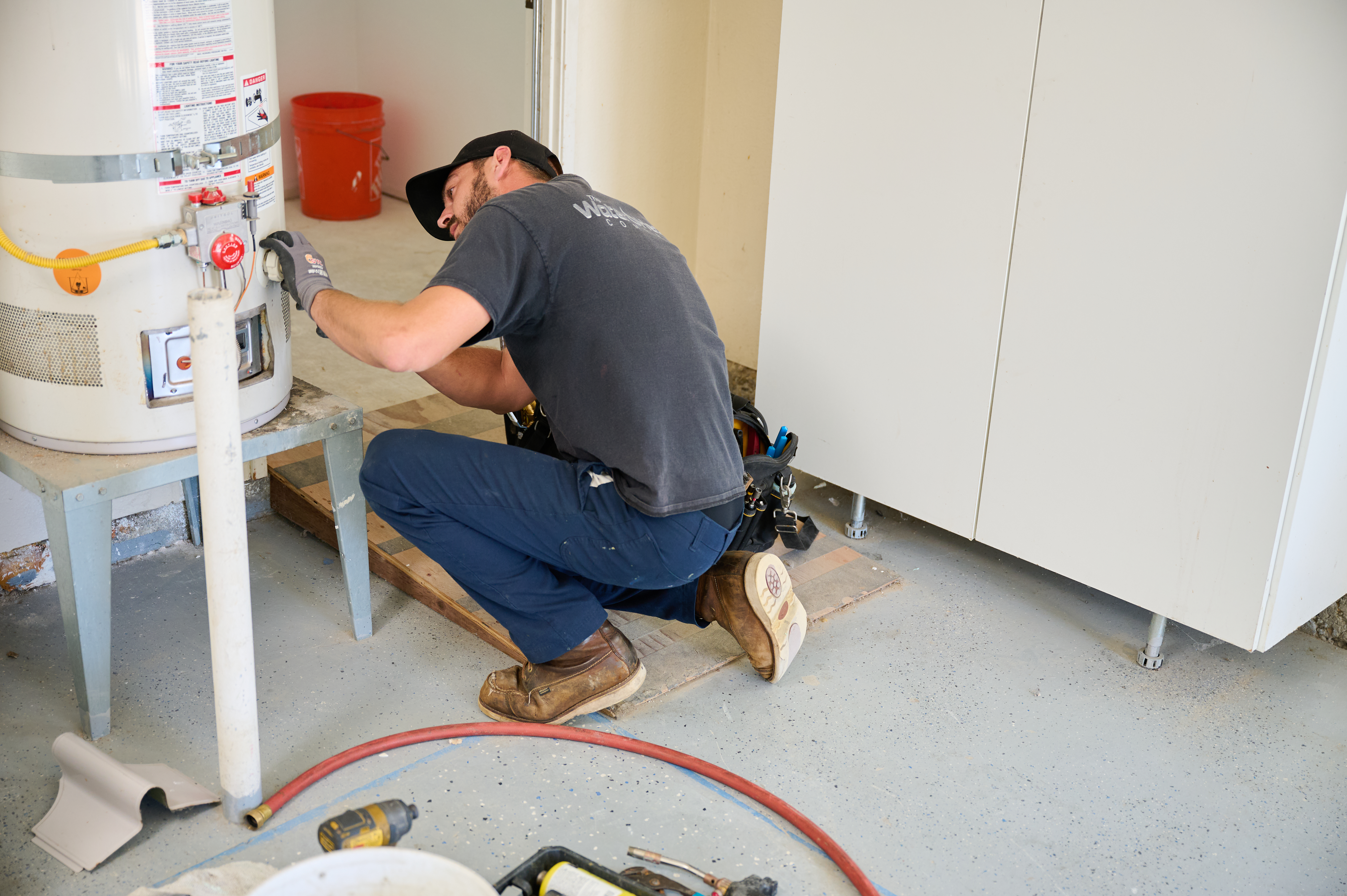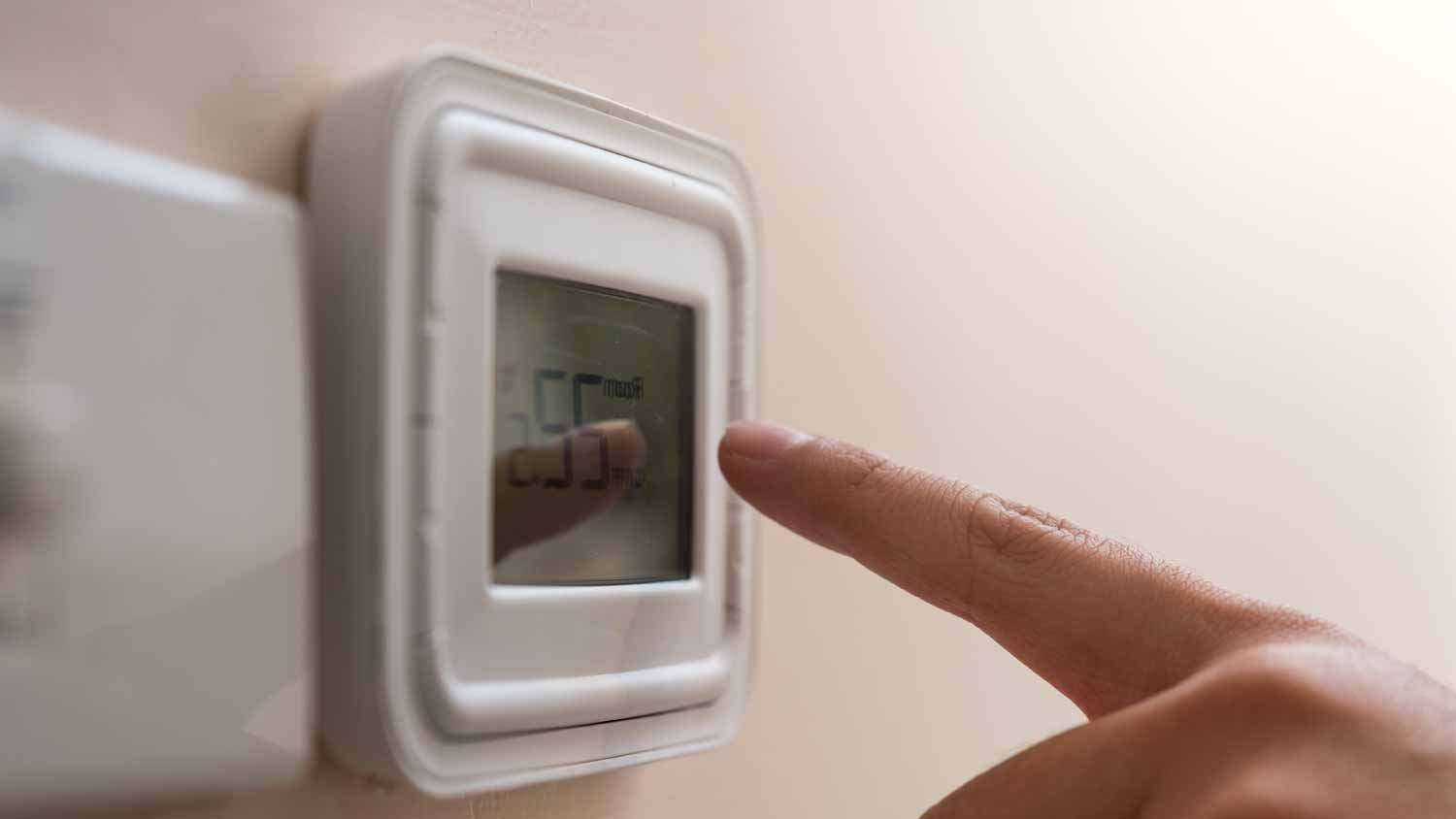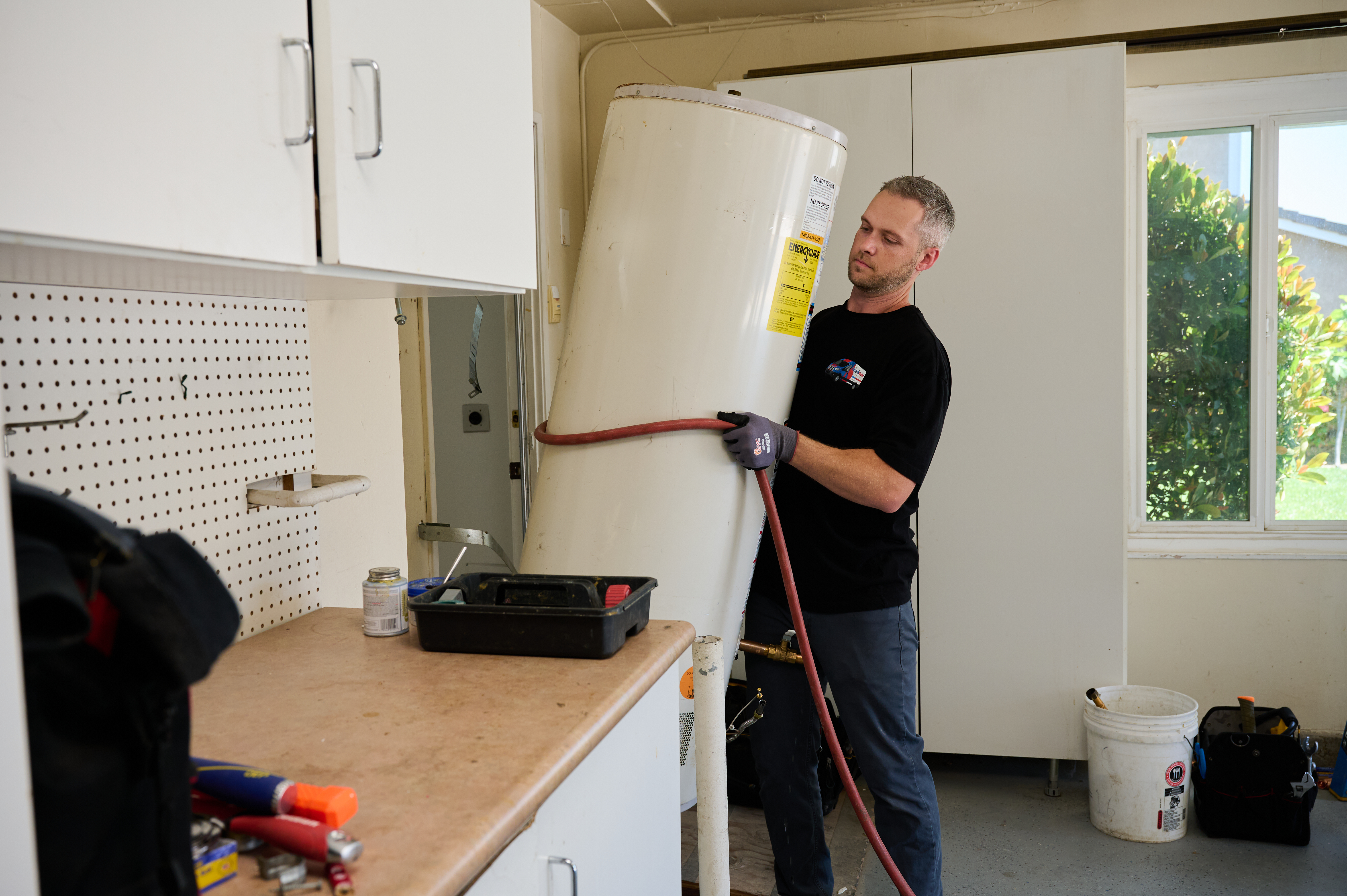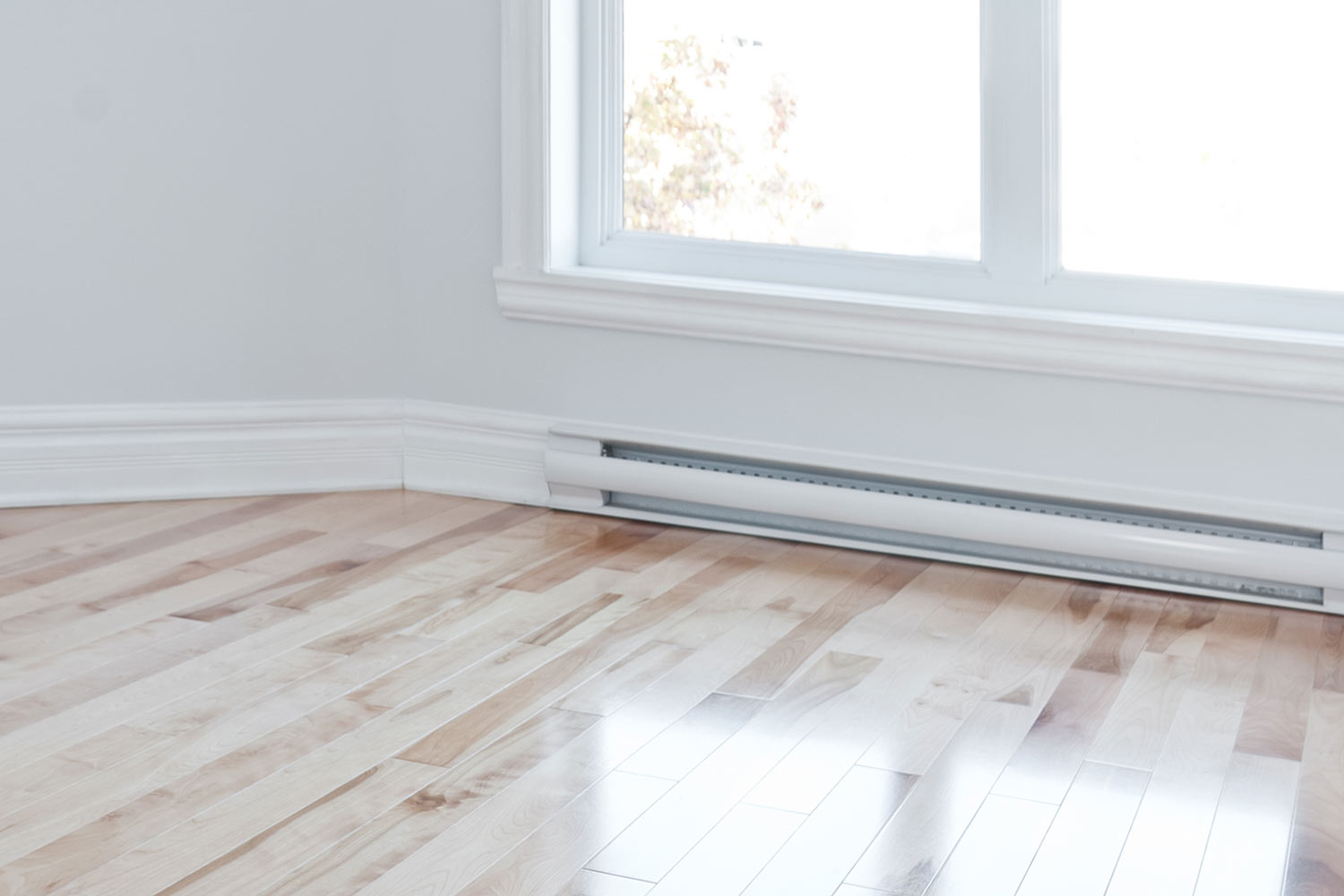
Tankless water heater costs in Columbus, OH depend on the size of your water heater, location, fuel type, and more. Keep reading to calculate your expenses.
Here’s “watt” you need to know about the energy usage of this major household appliance


Water heaters use between 1,000 and 4,500 watts, depending on the unit’s size.
10 to 20-gallon heaters use an average of 1,500 watts.
Larger heaters in the 30- to 80-gallon range use 4,500 watts.
Check the tank to determine the wattage and other energy information.
When you’re enjoying a hot shower or relaxing in a warm bath, you’re probably not thinking, “How many watts does a water heater use?” But knowing how much electricity is being used by one of your household’s most important appliances is helpful when it comes to improving energy efficiency and managing utility costs.
If you need help calculating your water heater’s energy use or want to replace it with a more energy-efficient model, hire a local water heater contractor to get the job done. Let’s review the wattage used by a water heater and how to use that information to your advantage.
To find out how many watts your water heater uses, it’s easiest to look directly at the tank to read the wattage and other energy information printed on the label. Otherwise, here are some guidelines:
10–20-gallon water heater: 1,000–2,000 W (1,600W average)
30–80 gallon water heater: 4,500 W
Even though residential water heaters range in size, those in the 30-80 gallon range typically use the same wattage, 4,500W. That’s because wattage is not based on the capacity of the tank, but the energy needs of the heater itself.
If you need a refresh on watts (W), it’s a basic measuring unit of energy primarily used to calculate larger volumes of electrical power. A watt equals an amount of energy for one second. For context, a typical home wattage is between 1,083 to 1,375 watts.
When discussing and measuring an appliance’s power consumption, we typically refer to its energy needs in watts. If we measure the amount of energy a device needs to operate for an extended period, such as a week or a month, we use kilowatt-hours (kWh). Keep these definitions in mind when evaluating your water heater’s energy consumption.
Your water heater is one of the biggest energy users in your home. Aside from heating water for your shower or bath, it also supplies hot water to your faucets, washing machine, and dishwasher. Keep in mind, though, that unlike an air conditioner or other appliance that might run during the majority of the day, your hot water heater will run about two hours per day. Based on that average, let’s figure out how much running your water heater costs.
You are charged by the kilowatt hour on your electric bill, so let’s see how many kilowatt hours a 4500W water heater needs to run:
Wattage x Number of operating hours / 1,000
4500W x 2 (hours) / 1,000 = 9 kWh
That means your hot water heater needs 9 kWh to run each day, or around 270 kWh to run per month. According to EnergySage, the average cost for electricity is $0.23 per kWh. Let’s do the math:
4500W: $0.23 x 270 kWh = $62.1 per month, or about $2.07 per day

Even though your water heater costs a little more than a dollar an hour to operate, there are ways you can conserve energy and save money on your electric bill each month. Follow these tips and tricks to save on your water heater’s utility costs.
Replace your current water heater with a more efficient model: You could opt for a tankless water heater, which provides hot water when needed rather than store it up for later use. This type of model uses less energy and it also takes up less space. But if you prefer a more traditional water heater, newer models—especially those with the ENERGY STAR® label—will run more efficiently.
Add a timer: Set a schedule for your water heater to run only when you need hot water. You can call a professional plumber or a water heater contractor to install one on your current hot water heater.
Insulate your water heater: The water needs to be heated, not the rest of the room or basement. Wrap your heater in insulation or some type of thermal cover that will keep that heat from radiating outward.
Stick to a maintenance schedule: It’s important to have your household’s major appliances and systems repaired or serviced regularly to prevent future issues and troubleshoot current ones. For your water heater, this means draining or flushing the tank to remove any build-up that could prevent it from working properly.
Lower the thermostat: Decreasing the water heater’s temperature will naturally result in water that isn’t quite so hot, but it can add up to savings.
Do full loads of laundry and dishes: By running these appliances only when full, you’ll save energy. Also, consider using a cold or warm setting as opposed to hot to give your water heater a break.
Limit your shower time: If you get your best ideas in the shower and prefer to linger, then it’s a good idea to replace your current shower head with a low-flow one.
Window Depot did an amazing job on my deck. I wasnt sure what I wanted to do, but their composite decking was affordable and will last a long time. I am excited to have family over, and I am no longer embarrassed by my backyard. Jeff and the ground crew were polite, respectful, and caring for...
We used Unique Hardwood Floor LLC three years ago to work on the floors of a 70 year old home that needed a great deal of work. Some floors needed repairs, some were replaced and others just needed to be refinished. It was a complicated job as they needed to blend the old and the new to...
Very good service. Will use them again in the future.
We had a gutter blockage that was causing water to sheet down the side of the house and ultimately it started to come in at a window (need mortar people next). Called around 7:30am, and he responded by 8am. He was able to come out the same morning and do a look over and clean out. He also...
They were the most through inspecting the water system in my house. Even going the extra mile to get the water professionally tested for contamination.
I've used Quality Drain Solutions multiple times and they are consistently excellent in terms of their level of service and quality of work. They respond quickly, arrive when they say they will, and clean up when they're done. They removed the leaky water heater, and replaced it with a new...
BUYER BEWARE! This company is fraudulent!!!. They didn't stand behind the warranty I paid for. They didn't stand behind the work they did. The work they performed 90 days ago was done incorrectly so I had to pay to fix it again. The technician that did the work 90 days ago is no longer with...
Chris did an excellent job. Called to let me know of his arrival time, explained the process and was very thorough. After lifting up a chair for him to clean under, we noticed a significant stain; almost rust like. He spent concentrated time working on removing the stain and did a...
They did a great job. They checked to determine where the squirrel was gaining entry and set traps to catch it. They removed all of the squirrels (there was only one) and kept the traps in the area with fresh bait to ensure there were no more. They were thorough & effective. Also they...
From average costs to expert advice, get all the answers you need to get your job done.

Tankless water heater costs in Columbus, OH depend on the size of your water heater, location, fuel type, and more. Keep reading to calculate your expenses.

Looking to replace or upgrade your water heater? Use this water heater replacement cost guide to see what the work will cost and what factors affect your total.

Find out the average tankless water heater repair cost, what impacts pricing, and how to save. Get expert tips to plan your repair budget with confidence.

Not sure who to hire for baseboard or wall heater installation? Learn when to call an electrician, HVAC tech, or plumber, and see how pros install them.

Hybrid water heaters will have you weighing high initial costs versus long-term savings. Is it the right option for you? Explore the pros and cons of hybrid water heaters.

Help your water heater work correctly and efficiently with a water heater inspection. We’ve got you covered with a checklist that you can do yourself.